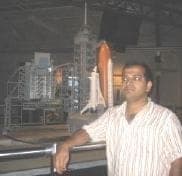
-----
Frequent Rectifier Problems Due to Humidity
Q. We have this severe problem of our rectifiers going out of order after a humid weekend. I'm in Kentucky and we face a number of hurricanes each year. The problem worsens whenever a hurricane passes by.
Especially electronics (boards, etc.) inside the rectifier get corroded and we have to replace costly boards.
I want to share everybody's experience regarding this problem. How do you guys deal with this issue? It would be lovely to hear responses from Southeastern platers who face most hurricanes.
We have these rectifiers sitting on a platform and we even have good make up units.
Please share your thoughts.

Hemant Kumar
- Florida, USA
2005
A. For many years I have been advising clients to install their rectifiers in closed rooms with filtered air and climate control (for air cooled rectifiers.)
It has also been my experience that water cooled units are less prone to some of these problems and oil cooled basically immune. Further, if the rectifier output is in the range of the technology, switch mode units can be placed in Nema 2 enclosures with an air conditioning pack.
process supplier - Great Neck, New York
2005
A. Hello Hemant. Although this problem surfaces during periods of high humidity, I doubt that it's humidity per se that causes it. Plating shops, even with good make up air units, tend to be laden with HCl vapors and other highly conductive and corrosive materials. So whenever it gets damp out, these conductive salts short things out.
The reason for mentioning this is that Gene's advice is very good. You probably don't need to worry as much about keeping humid days away from your rectifiers as keeping the day-to-day plating vapors away from them. Good luck.
Regards,

Ted Mooney, P.E.
Striving to live Aloha
finishing.com - Pine Beach, New Jersey
Ted is available for instant help
or longer-term assistance.
Rectifier for Ammonium Chloride Acid Zinc Plating - Air or Water/Oil Cooled?
Q. We have a barrel Ammonium Chloride Acid Zinc electroplating line.
Currently we are using Oil / Water cooled rectifiers and need to add some 6000A 15V rectifiers.
We are being offered an air-cooled rectifier.
What are the pros and cons of air-cooled rectifiers?
Thanks in advance!
Business Owner - Manila, Philippines
June 2, 2017
Ed. note: This RFQ is outdated, but technical replies are welcome, and readers are encouraged to post their own RFQs. But no public commercial suggestions please ( huh? why?).
A. Hi cousin Maynard. The advantage of air cooled rectifiers is they are simpler (no need for water or air pumps) and cheaper. The disadvantage is they are usually bigger (air doesn't remove heat as effectively as water or oil) and more susceptible to the corrosive issues present in most plating shops.
If your shop enjoys unusually clean air, or if you can install the rectifier in a separate closed room as Gene mentions, it will probably be okay. Otherwise, I'd probably stick with what has worked.
Regards,

Ted Mooney, P.E. RET
Striving to live Aloha
finishing.com - Pine Beach, New Jersey
Ted is available for instant help
or longer-term assistance.
June 2017
Q. Thank you very much for your reply!
So we will weigh in favor of non-air cooled, since we are Acid Zinc process.
There are 2 kinds of cooling being offered to us: Water-cooled vs Oil & Water Cooled.
Our existing units are Oil & Water cooled. But one disadvantage is the condenser unit of the cooling water which takes away the heat from the oil inside, there is some condensation and the condensation drips and is trapped inside the unit (maybe poor unit design).
HPS vs SCR type? What are the pros and cons?
Many thanks in advance! Really appreciate the time and effort to guide us.
Fasteners Incorporated - Manila City, Philippines
June 14, 2017
June 2017
Hi again Maynard. To my limited knowledge --
-- In oil cooled rectifiers all critical & heat-generating components sit in an oil bath, and large air-cooled heat sinks surround the unit to transfer the heat to the air.
-- In oil-and-water cooled units, all critical & heat-generating components sit in an oil bath, and water is used to cool the oil.
-- In water cooled rectifiers, critical components are not bathed in oil, but have water circulating through them.
If water is involved in the cooling, it may be possible to beneficially use the warm water, for example in a warm rinse tank, without the need for further cooling systems.
Although SCR stands for Silicon Controlled Rectifier, and they have been widely used for decades, I am not personally familiar with HPS -- High Performance Schottky? Hammond Power Solutions? -- presumably not Hybrid Power Systems. Hopefully another reader can guide you.
Regards,

Ted Mooney, P.E. RET
Striving to live Aloha
finishing.com - Pine Beach, New Jersey
Ted is available for instant help
or longer-term assistance.
Q, A, or Comment on THIS thread -or- Start a NEW Thread